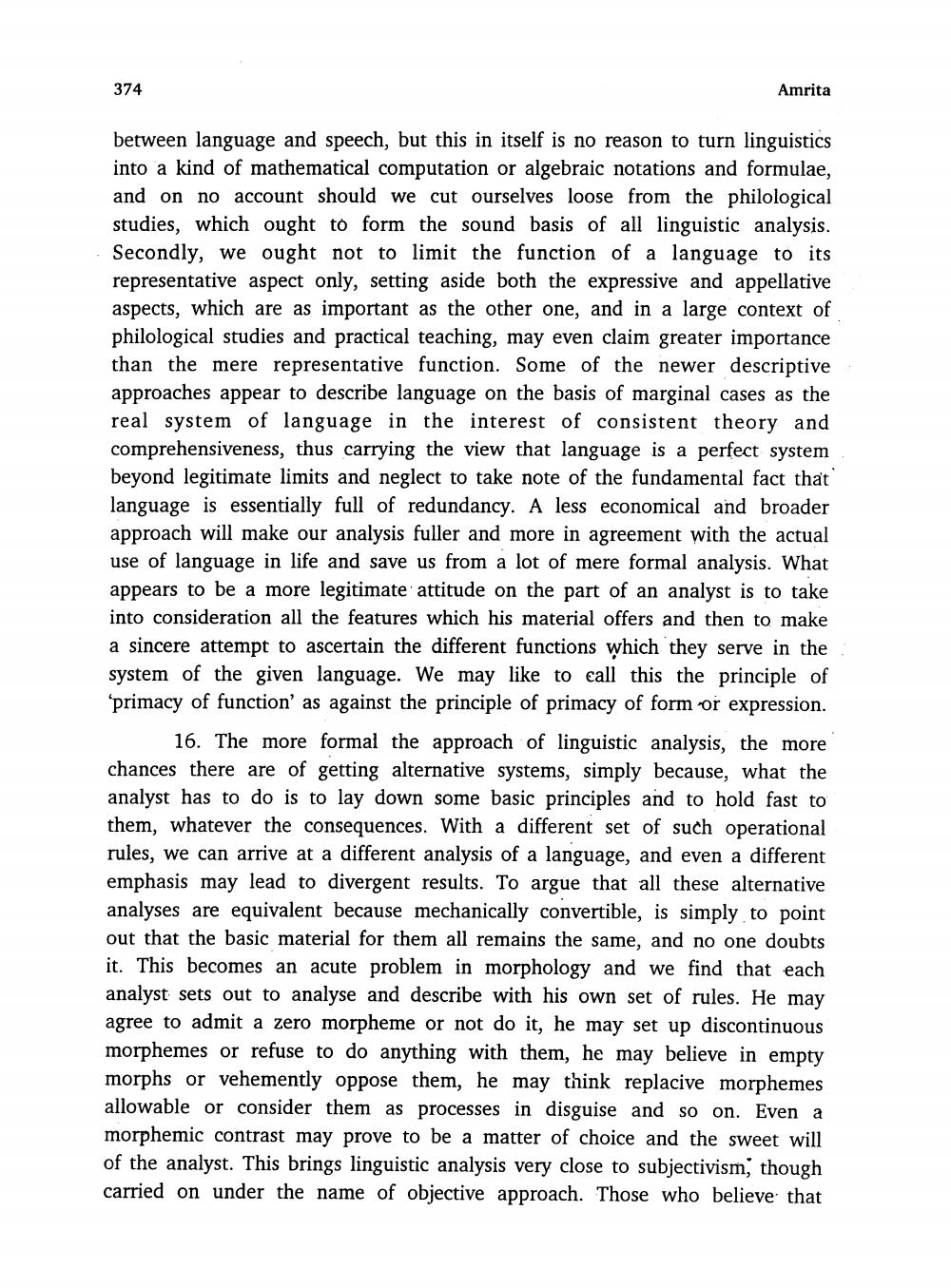________________
374
Amrita
between language and speech, but this in itself is no reason to turn linguistics into a kind of mathematical computation or algebraic notations and formulae, and on no account should we cut ourselves loose from the philological studies, which ought to form the sound basis of all linguistic analysis. Secondly, we ought not to limit the function of a language to its representative aspect only, setting aside both the expressive and appellative aspects, which are as important as the other one, and in a large context of philological studies and practical teaching, may even claim greater importance than the mere representative function. Some of the newer descriptive approaches appear to describe language on the basis of marginal cases as the real system of language in the interest of consistent theory and comprehensiveness, thus carrying the view that language is a perfect system beyond legitimate limits and neglect to take note of the fundamental fact that language is essentially full of redundancy. A less economical and broader approach will make our analysis fuller and more in agreement with the actual use of language in life and save us from a lot of mere formal analysis. What appears to be a more legitimate attitude on the part of an analyst is to take into consideration all the features which his material offers and then to make a sincere attempt to ascertain the different functions which they serve in the system of the given language. We may like to call this the principle of 'primacy of function as against the principle of primacy of form or expression.
16. The more formal the approach of linguistic analysis, the more chances there are of getting alternative systems, simply because, what the analyst has to do is to lay down some basic principles and to hold fast to them, whatever the consequences. With a different set of such operational rules, we can arrive at a different analysis of a language, and even a different emphasis may lead to divergent results. To argue that all these alternative analyses are equivalent because mechanically convertible, is simply to point out that the basic material for them all remains the same, and no one doubts it. This becomes an acute problem in morphology and we find that each analyst sets out to analyse and describe with his own set of rules. He may agree to admit a zero morpheme or not do it, he may set up discontinuous morphemes or refuse to do anything with them, he may believe in empty morphs or vehemently oppose them, he may think replacive morphemes allowable or consider them as processes in disguise and so on. Even a morphemic contrast may prove to be a matter of choice and the sweet will of the analyst. This brings linguistic analysis very close to subjectivism, though carried on under the name of objective approach. Those who believe that




